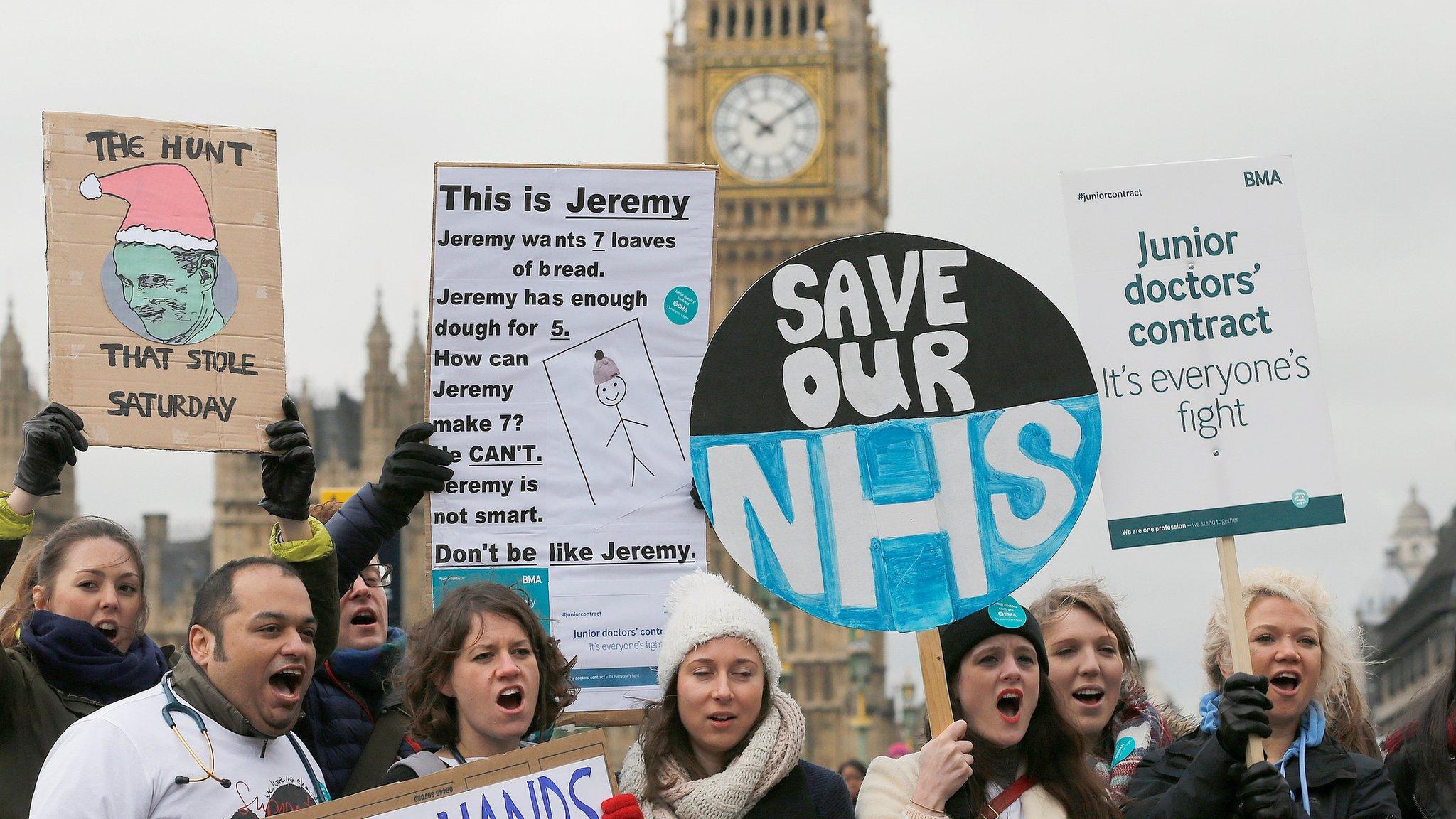Junior doctors' dispute - where now?
- Published
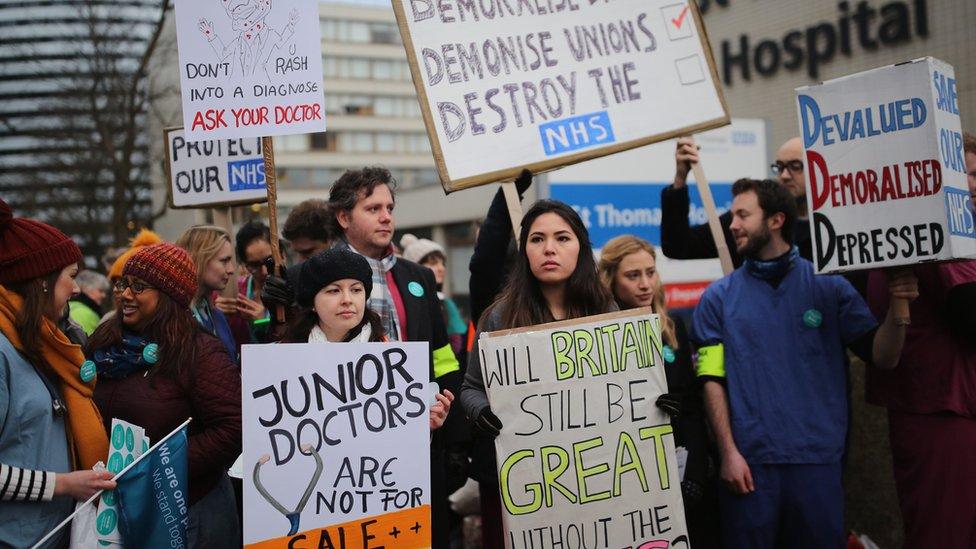
The junior doctors' row has moved to a new level this week - so what now?
After weeks of uncertainty - and both sides eyeing each other suspiciously from a distance - the junior doctors' row has moved to a new level this week.
Events have moved fast. An afternoon of talks, a new offer, a strike, and a deadline - which passed followed by the dramatic planned imposition of a new contract.
Then came a row over whether there was wider support among NHS leaders over the government's stance.
So where next?
Government negotiators felt they had made a significant move late on Tuesday with a new offer to the British Medical Association. This would have extended the proposed premium payment for Saturday working from doctors doing one weekend in three to one in four.
But the BMA argued it did not cover the other 50% or so of doctors who did fewer weekends, and so would not qualify for extra payments for working on a Saturday before 17:00.
Wednesday's strike, affecting routine and non-urgent care at English hospitals, continued with no word of the offer or a BMA response.
Contract deadline
Late in the evening, details emerged with the important revelation that the government's chief negotiator, Sir David Dalton, had given the BMA a deadline, which had passed.
The union's failure to back the offer, Sir David argued, represented the end of the road for negotiations.
The logical consequence of Sir David's statement was that Health Secretary Jeremy Hunt would feel able to impose a new contract on junior doctors.
There was speculation on whether that might happen within days. In the event it happened with hours of the strike ending at 08:00 on Thursday morning.
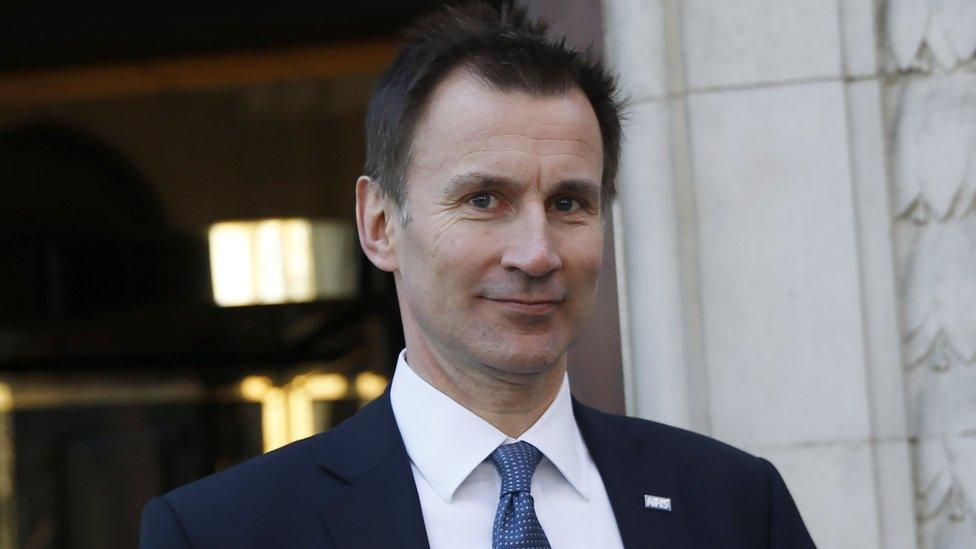
Health Secretary Jeremy Hunt announced he is to impose the contract on junior doctors
Sir David's involvement has been very important for the health secretary.
Mr Hunt has been able to argue that a respected hospital chief executive (Sir David runs Salford Royal Foundation Trust) has done all he possibly could to reach a settlement and that his impartial judgement on ending the talks should be respected.
Sure enough, Mr Hunt could quote Sir David's advice in the House of Commons as he announced his plan to impose the contract from August.
Sir David's letter advised the government to "do whatever it deemed necessary to end uncertainty for the service and to make sure that a new contract is in place".
He said this position was supported by trust chief executives across the country and twenty of their names were added to the letter.
The involvement of a wider group of NHS leaders gave the government further comfort as ministers embarked on their controversial imposition plan.
Twitter row
But late on Thursday, this began to look fragile as the Health Service Journal discovered that some of the 20 named in the letter did not actually support the imposing of the contract.
A bizarre series of exchanges on Twitter flushed out more chief executives distancing themselves from the government's policy - bringing the total to 10 out of 20 according to HSJ.
One of them, Andrew Foster, of Wrightington, Wigan and Leigh NHS Trust, even suggested he had supported a different letter to the one published.
Sir David later told the journal the statement the signatories agreed to was confirming the final position was fair and reasonable, and not signifying support for imposition of the contract.
The Department of Health said this was not a matter for them but for NHS Employers.
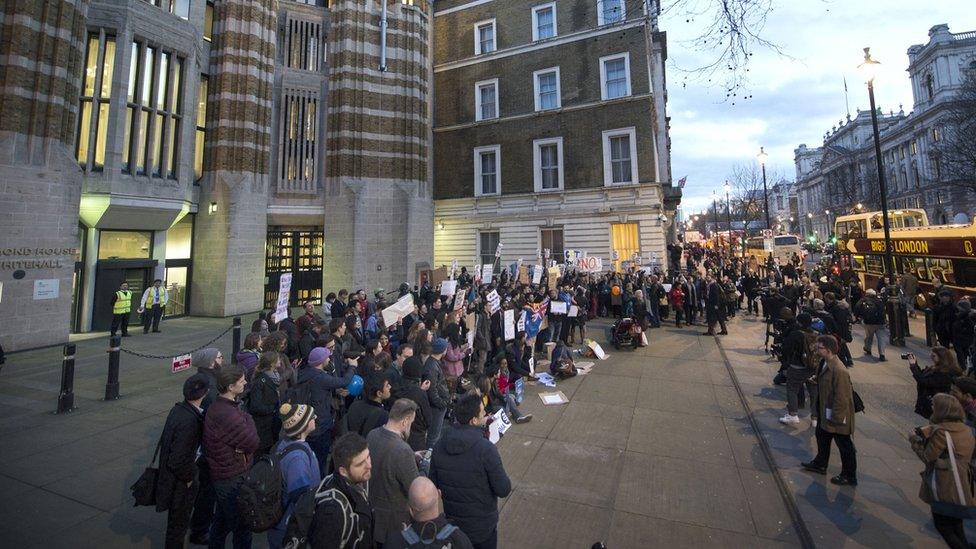
Junior doctors continued their protest outside the Department of Health on Thursday
It all might prove to be a storm in a teacup with the Dalton letter and its supporters forgotten in a week's time.
But it is an unfortunate development as the government embarks upon what may prove a long-haul in their task of finalising and pushing through the contract.
Ministers certainly will not want to see support at senior levels in NHS management melt away as they move into uncharted waters with contract imposition.
A noisy gathering of junior doctors at Westminster on Thursday night showed that they were not winding down their campaign against the contract.
The BMA is planning its next move, which might involve further industrial action.
It may be a long, hot summer for the government as it tries to win public support for a move that has angered an important constituency in the medical profession.
- Published6 April 2016
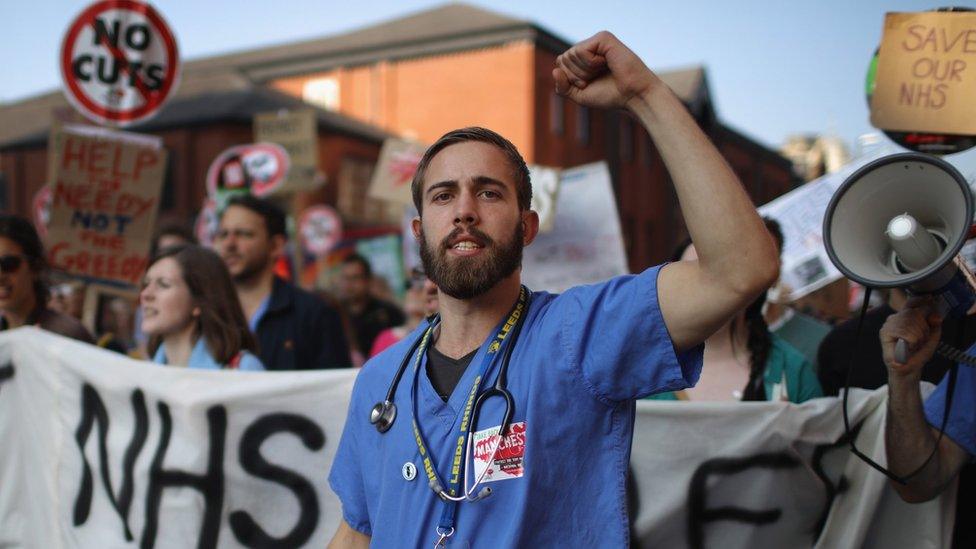
- Published11 February 2016

- Published11 February 2016
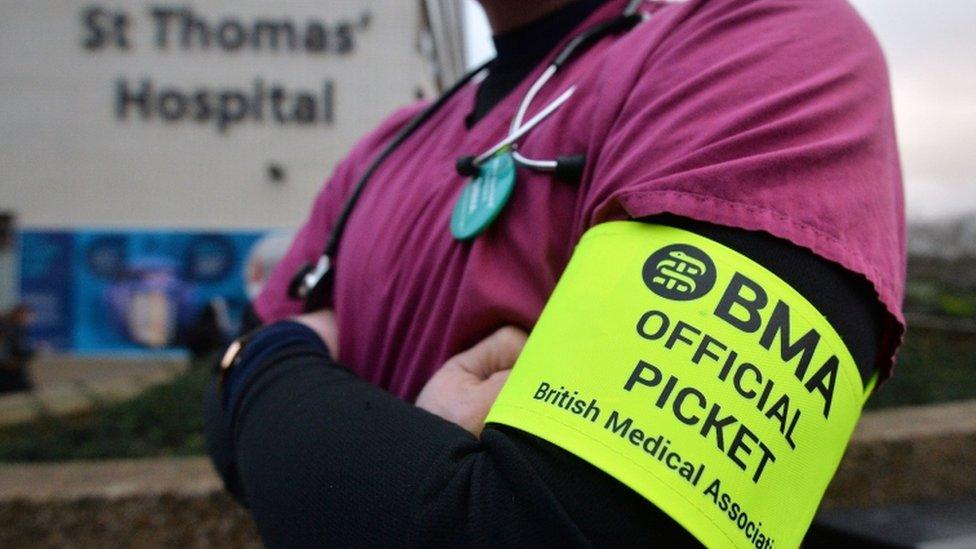
- Published11 February 2016
